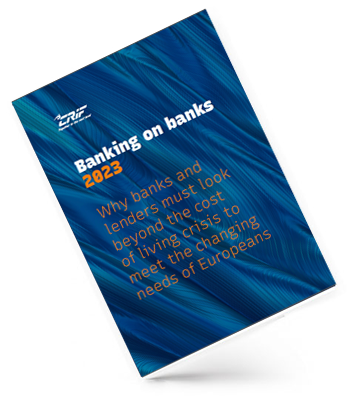As a follow-up to the widely acclaimed Banking on Banks 2022, the 2023 edition uncovers the changing landscape of European banking in the face of the current economic upheaval.
Over the past year, we've delved into the profound impacts that rising inflation and prices have had on people's lives, their financial priorities, and the shifts in their relationship with financial institutions.
By analysing the opinions and experiences of thousands of Europeans from six major markets, we reveal the steps taken by individuals to manage their finances, how they've altered their spending habits, and how financial providers have responded to these challenges.
While last year’s research looked at where Europeans expected to cut back on their spending and where they would turn to for support, this year we wanted to look at what action was in fact taken, how consumers have changed their spending habits and what steps they have taken to manage their finances. We also wanted to specifically find out how banks and other financial providers have responded to the complex challenges.
This year’s report shows that, despite some encouraging signs of improvement, four in five Europeans still have concerns about their finances over the next 12 months. This is perhaps unsurprising when you consider, for example, the Bank of England’s top economist has openly stated that people in the UK need to accept they will be poorer. However, our research shows this sentiment is being felt by millions of people across the continent.
We have identified a number of key areas in which banks and other financial providers must continue to improve, including enhancing their digital solutions.
As well as their approach to credit repayments, these include the provision of comprehensive digital services and data sharing. In addition, and in light of the climate crisis, ESG considerations are now more front of mind for European consumers. Two-thirds are more likely to bank with a company that is transparent about its operations.
When it comes to data sharing, more Europeans have said they would now be prepared to share their financial data if it helped them to avoid financial difficulty or achieve their financial goals. The appetite is there and developments in open banking technology mean that banks and other providers can draw on this data to build a more mutually beneficial relationship. Through a more holistic understanding of their customers, lenders can lend with much more confidence, ensuring they can responsibly extend their services to those who need them to stay afloat in today’s volatile economy.
Discover how banks can play a larger role in supporting individuals and the areas where improvement is needed - digital services, data sharing, credit repayments, and transparency in operations, among others.



